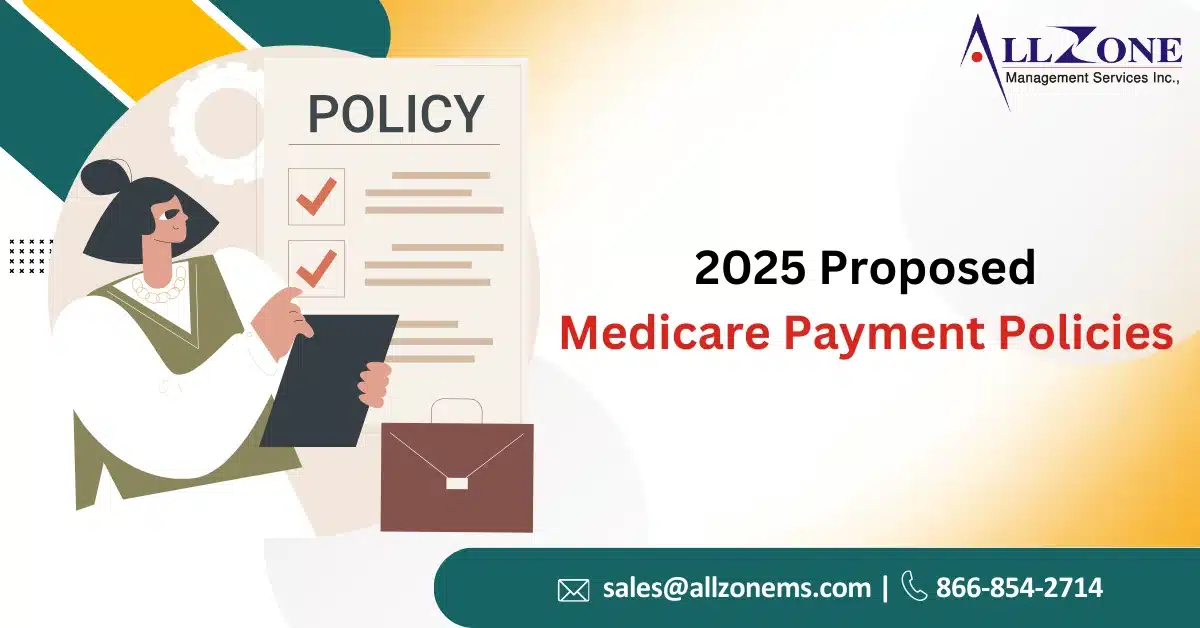The United States Department of Health and Human Services (HHS) and Centers for Medicare and Medicaid Services (CMS) have proposed new 2025 Medicare payment policies for hospitals and ambulatory surgical centers (ASCs) that aim to increase access to care and advance health equity. These policies are outlined in the 2025 Hospital Outpatient Prospective Payment System (OPPS) and Ambulatory Surgical Center (ASC) proposed rule.
Key Proposed Changes:
-
- Increased Payment Rates: CMS has proposed updating payment rates for hospitals and ASCs that meet quality reporting requirements. These updates are based on the projected market basket percentage increase and include a productivity adjustment.
- Non-Opioid Pain Relief Treatments: The proposed rule includes temporary additional payments for certain non-opioid treatments for pain relief in hospital outpatient departments and ASC settings. This is aimed at reducing reliance on opioids and improving patient outcomes.
- Increased Access for Indigenous Communities: The proposed rule would enable Indian Health Services (IHS) and tribal facilities to receive separate payment for high-cost drugs, allowing them to expand access to specialty care, including oncology, in their communities.
- Quality Reporting and Equity Measures: CMS is proposing to expand the quality reporting measures for hospitals, ASCs, and rural emergency hospitals to include equity measures. This will help to identify and address disparities in care.
- Support for Individuals Returning from Incarceration: The proposed rule would eliminate barriers for individuals returning from incarceration to enroll in and maintain their Medicare coverage.
Impact and Support:
The proposed 2025 Medicare payment policies would impact approximately 3,500 hospitals and 6,100 ASCs. The Biden-Harris Administration has expressed strong support for these policies, emphasizing their importance in ensuring access to quality care for all patients, regardless of their location.
The proposed 2025 Medicare payment policies represent a significant step forward in improving access to care and advancing health equity. By increasing payment rates, supporting non-opioid pain relief, expanding access in Indigenous communities, and addressing disparities in care, these policies have the potential to make a meaningful difference in the lives of millions of Americans.
Medicare Payment Policy and Revenue Cycle Management (RCM)
Medicare, a federal health insurance program, has a complex payment structure that healthcare providers must navigate to ensure accurate and timely reimbursement. Understanding Medicare’s payment policies is crucial for effective revenue cycle management (RCM).
Key Components of Medicare Payment Policy
- Fee-for-Service (FFS): This is the traditional payment model where providers are reimbursed for each service rendered. Medicare uses a fee schedule to determine the amount it will pay for specific procedures and services.
- Value-Based Payment (VBP): This model focuses on the quality of care provided, rewarding providers for achieving positive health outcomes. Examples of VBP programs include:
- Bundled Payments: Providers receive a fixed payment for a bundle of services related to a specific episode of care.
- Shared Savings: Providers share in the savings generated by improving care quality and reducing costs.
- Medicare Advantage (MA): MA plans are offered by private insurance companies and provide additional benefits beyond those covered by Original Medicare. Payment arrangements between providers and MA plans can vary.
Choosing the RCM Company
Choosing the right RCM Company like Allzone, depends on various factors, including the size and complexity of your healthcare practice, you’re specific needs, and your budget. It’s essential to evaluate companies based on their experience, expertise, technology offerings, and track record. Consider partnering with Our RCM Company that specializes in Medicare billing and has a deep understanding of the program’s complex payment policies.

